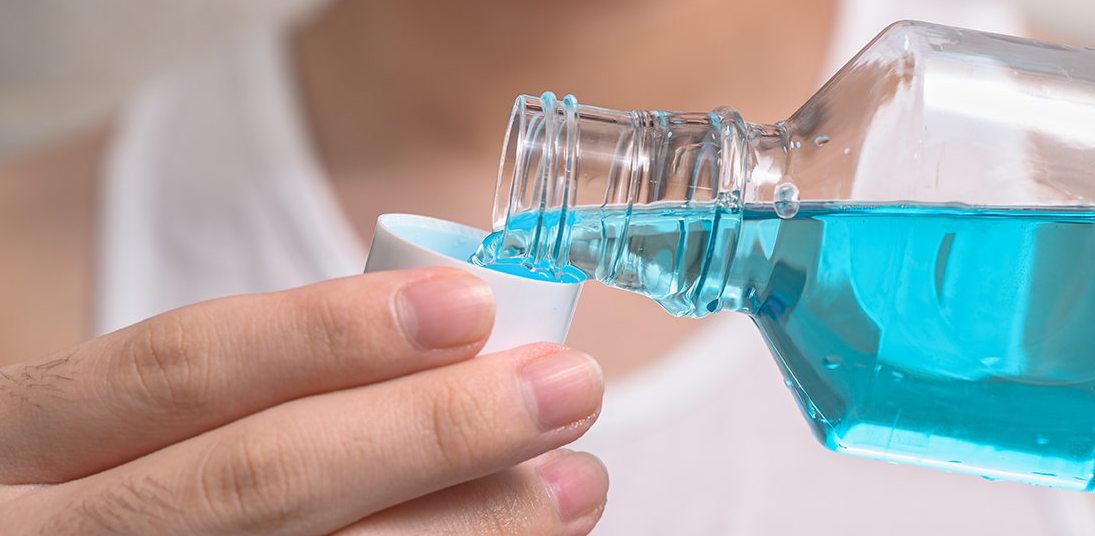Every day we are bombarded by advertisements for oral solutions that some fight gingivitis and plaque, others prevent tooth decay, treat bad breath and generally ensure a clean and healthy mouth. There are two basic categories of solutions, fluorides and antiseptics – antimicrobials.
- Fluoride mouthwashes: their first and main goal is to strengthen the surface of the teeth, so that they are more resistant to the acids of tooth decay.. They are mainly used by children up to the age of 16-17. In special cases they are used by people with polytheronism. It is never recommended that children use mouthwash before the age of six. This is because most children will swallow the mouthwash instead of spitting it out. Most mouthwashes contain fluoride, which can cause fluoridation of developing teeth if large amounts are swallowed. For this reason, children to use mouthwash must always do so under the supervision of an adult, in order to learn the technique of rinsing, avoiding swallowing. There are commercially available mouthwashes that are specifically for children because they do not contain alcohol and are fluoridated. This results in protection against caries.
- The main dental indication for using an antiseptic mouthwash is gum diseases, such as gingivitis-periodontitis. There are various substances for this purpose, with chlorhexidine being the most effective. The treatment of microbial plaque is a basic condition for healthy gums and teeth. However, this is mainly achieved mechanically rather than chemically. That is, an antiseptic cannot in any case correct the consequences of insufficient tooth brushing or not using dental floss!
Antimicrobial mouthwashes contain:
- Chemical compounds with strong antimicrobial activity.
- Factors that help reduce dental plaque.
- Fluoride, which helps to strengthen teeth and prevents the development of tooth decay.
- Hydrogen peroxide, which produces atomic oxygen, where it is a strongly antimicrobial agent that helps destroy anaerobic microbes.
- Substances that help neutralise bad breath.
Antimicrobial solutions are recommended for sufferers of periodontitis during their treatment, to those who have undergone oral surgery, until they are able to brush their teeth again, and to those who have difficulty brushing and flossing because of a medical problem. However, it is contraindicated for those with aphthous ulcers or stomatitis.
Their use should be for a limited period of time and always under medical guidance. Prolonged use of these can cause:
- Alteration of the normal flora of the mouth and gradual prevalence of stronger microbial strains.
- Appearance of pigments in the teeth.
- Irritation of the oral mucosa.
- Alteration of taste.
Ask your dentist which mouthwash you should use to maintain your oral health. There are many factors that go into choosing the right mouthwash that is right for you so that you can get the most out of your daily oral hygiene. At Great Smile orthodontic clinic we can advise you according your teeth needs.

